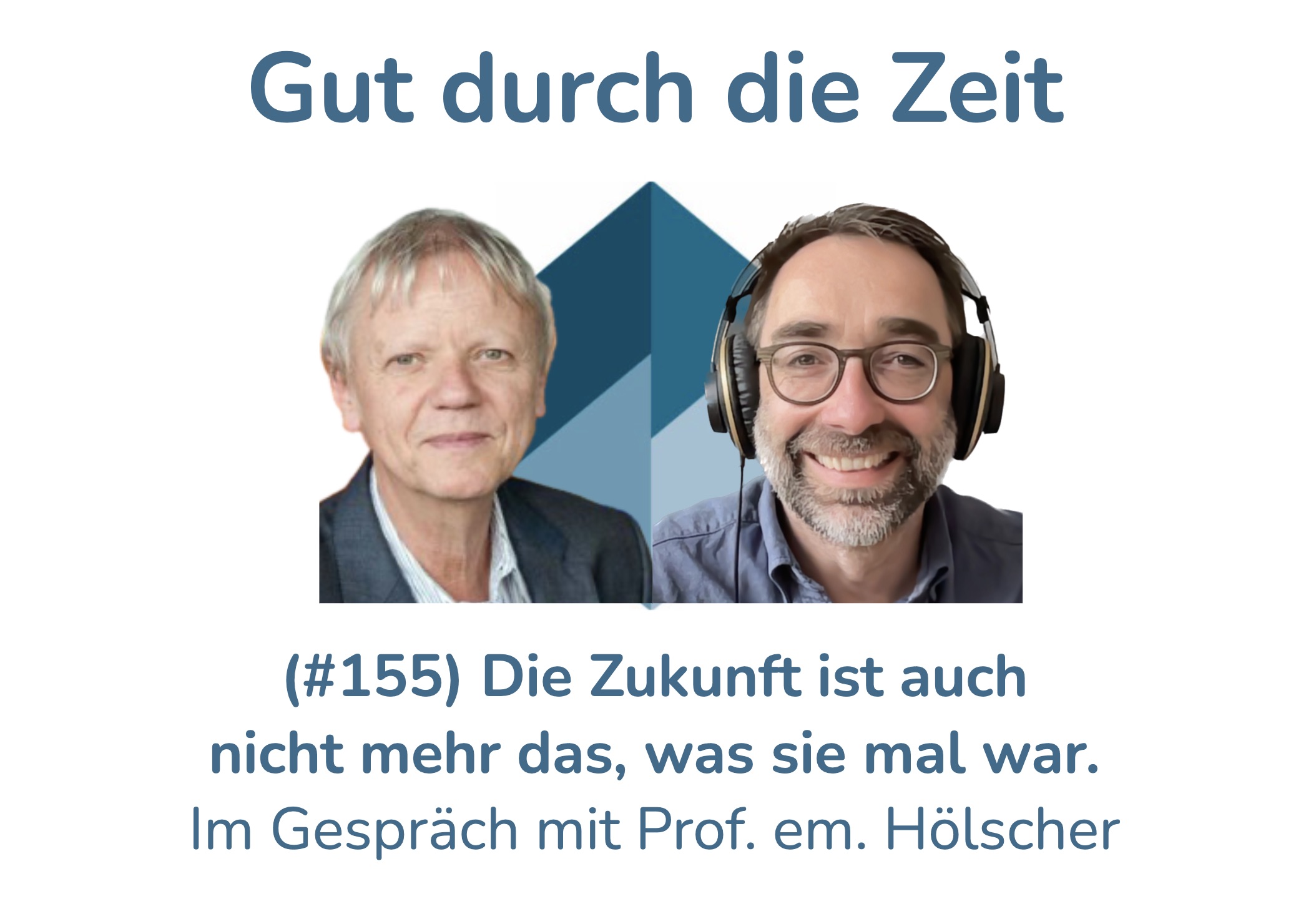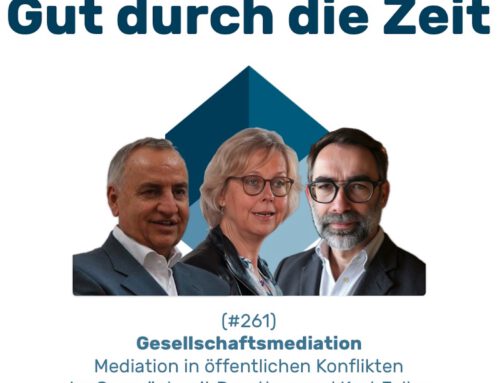INKOVEMA Podcast „Well through time“
#155 - The future is no longer what it used to be.
The future is no longer just coming towards us, we are now also progressing through it. In conversation with Prof. em. Lucian Hölscher
Well through time. The podcast about mediation, conflict coaching and organisational consulting.
Lucian HölscherGerman historian, born in Munich on 17 August 1948. He taught as Professor of Modern History and Theory of History at Ruhr University Bochum from 1991 to 2014. Author of several books and articles on historical topics, including in particular „The discovery of the future“. Hölscher's research interests include the theory of historical time and the history of the future.
Contents:
When the plug of the Last Judgement had been loosened as the only prospect for the future, the future time for the earthly began to run and haste was required.
In conversation with Lucian Hölscher, the beginnings of the mental revolution, which had nothing to do with modern mediation, are explained, which is almost taken for granted by us today: an idea of the future that does not rely solely on the prospect of the Last Judgement, but recognises an openness whose effects have had breathtaking consequences. Above all, that there is no time to lose on earth. Paradoxical, above all, because it was precisely this time of an open future that was gained. The experience of modern life par excellence.
What is interesting here is not only the development process of this change of perspective itself, but also its primary practical field of action: the economy of early capitalism, which built on these changed ideas of the future and heralded a change of perspective that brought about equally breathtaking changes: a growing economy that allowed, enabled and required a growing society. Once the future seems mouldable…
The ideas of future states are part of current decision-making processes.
What mediation is able to open upWhat a court hardly ever does, however, is that the conflict decision itself and directly takes the future into account, that the decision is placed on feet that have already left an imprint in the (imagined) future. This is a strategic orientation of conflict management and decision-making that only mediation can offer and conflict parties can utilise, which, because it is contractually agreed, can be targeted, formulated and negotiated in mediation. In essence, this is what distinguishes mediation from other conflict management methods, if it does so in practice.
Mediation wants to and can enlarge the cake and not just have a good chat while baking.
Literature:
I explained the connections between these changed ideas about the future of mediation and conflict management years ago in two specialist articles:
- Strategic mediation. A plea for an overdue change of perspective. Part 1 - Reckoning with the future instead of just wishing for one; in: Spektrum der Mediation, Issue 70, December 2017, pp. 18-22 (LINK)
- Strategic mediation. A plea for an overdue change of perspective. Part 2: Mediation and capitalismSpektrum der Mediation, Issue 71, pp. 26 - 30 (LINK)
Ideas for the future and mediation
Mediation is able to focus on the future as a category of reflection for conflict management in a way that legal or conciliatory processing cannot. While conciliation, by its very nature, focuses solely on the differences of the present and offers their centre as a compromise, the judge focuses on the law as knowledge gained from past experience in order to make conflict decisions. (The fact that judges or arbitrators also carry out a practical impact assessment and thus look into the future, so to speak, is something I'll leave out of the equation here, because practice and theory are two different things...)
However, the future as a category for reflection and decision-making is not just a so-called future-orientation. Conflicts are always dealt with by everyone for the sole purpose of creating a better future. This future orientation alone is not enough to generate the added value that is recognisably only available to mediation.
It seems an irony of history that mediation wanted to enlarge the cake, but rejected the capitalist legacy outright.
Backgrounds
As a conflict counsellor and mediator, it is important to me that people get through time well, that they practically get through it and at best move on. A client once drew my attention to the fact that I (like others) had always bid her farewell by wishing her well through time.
Even these farewells, but even more so the title of this podcast, was – I realised through her reference – influenced by Lucian Hölscher's book „The Discovery of the Future“.





Leave A Comment